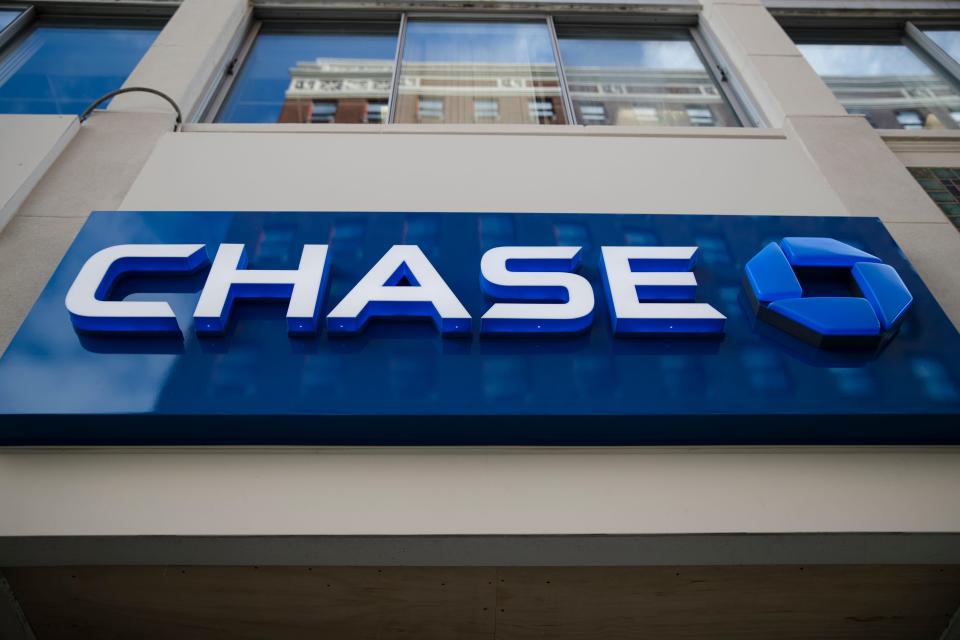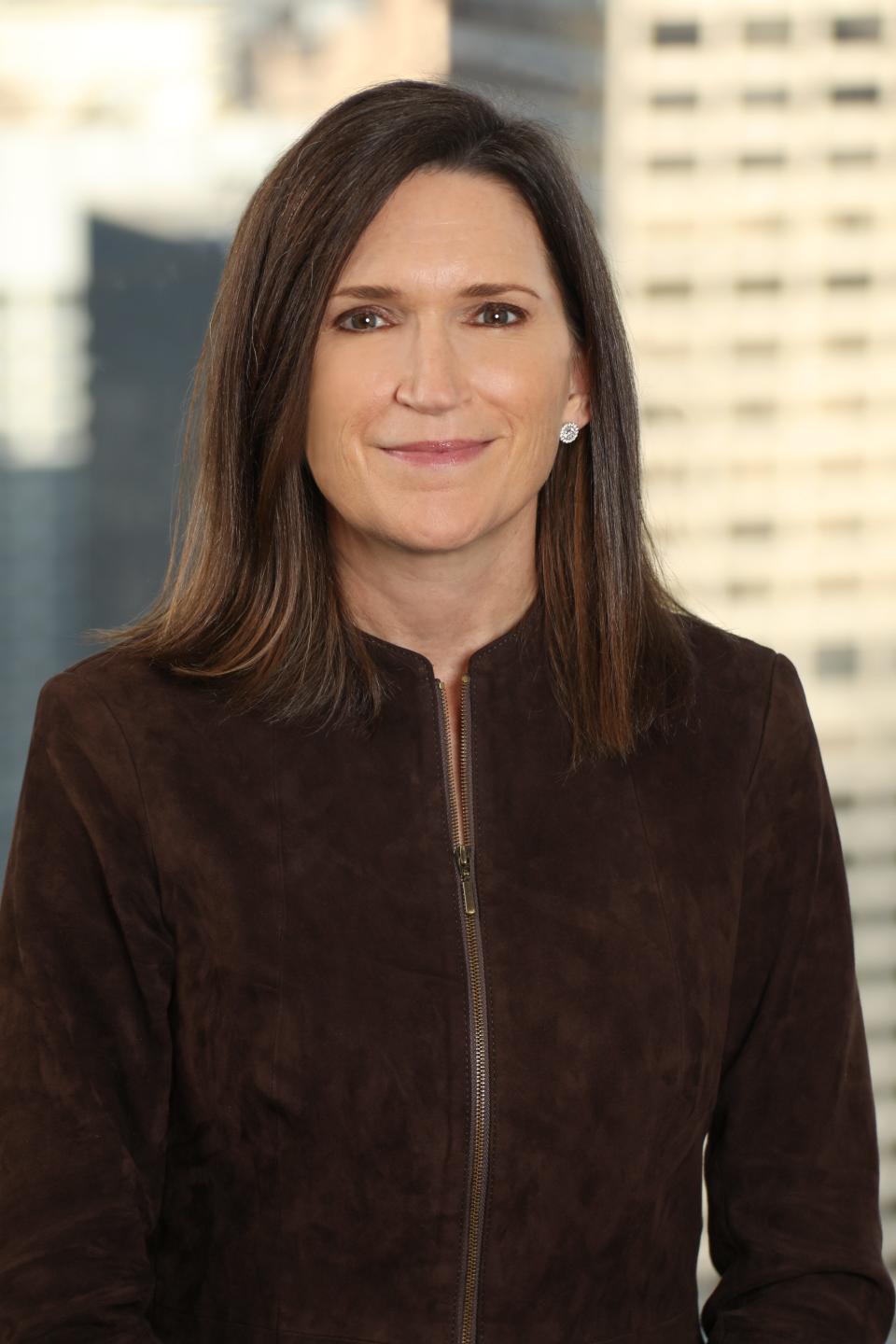Chase adds tools to help customers avoid overdraft fees – but it's not eliminating them

Burdensome, sometimes budget-busting, overdraft fees are gradually getting chipped away as criticism builds against banks.
On Wednesday, Chase – the country's biggest bank – announced four key changes relating to the overdraft picture.
Unlike Capital One, which made news last week by announcing plans to eliminate overdraft fees in 2022, Chase is keeping its $34 overdraft fee, and Chase customers may be charged a maximum of three overdraft fees per day.
► Capital One will quit charging customers overdraft fees: It is one of the largest financial institutions to announce a halt to the practice.
Chase's plan to help customers avoid overdraft fees
Instead, Chase is promoting a better buffer for avoiding triggering overdraft fees, the elimination of a non-sufficient funds fee, plans to offer a new next-day grace period and also up to two business days early access for direct deposit of paychecks.
Next year, Chase will initiate a new grace period where customers will have until the end of the next business day to correct shortfalls and add money to bring a balance back to where the customer could be overdrawn by $50 or less to avoid fees from the previous day.
Also beginning in 2022, Chase will offer its customers early direct deposit, which would enable customers to get access to their paychecks that are directly deposited up to two business days early.
Having access to that money a bit earlier might help some avoid overdraft fees too.
Those two changes for 2022 are on top of two other moves that Chase quietly rolled out in August but began publicizing now.
► The Daily Money: Get our latest personal finance stories in your inbox
Chase noted that in August it eliminated a $34 fee called a "Returned Item Fee." The fee, also known as a non-sufficient funds fee, was charged when Chase declined to pay a check or electronic payment because the customer didn't have enough money in their account.
Chase also said it expanded its overdraft cushion to $50 from $5 back in August. Chase customers pay no overdraft fees if they make a purchase that causes their account to be overdrawn by $50 or less. Now, the overdraft fee kicks in when a transaction of more than $50 ends up overdrawing the account.

Jennifer Piepszak, co-CEO of Consumer & Community Banking for Chase, told the Detroit Free Press in a phone interview that the bank's customers now have a larger buffer before they would incur a fee.
"Nearly 2 million customers have benefited to this point," she said.
After making sure the technology is working properly with the new program, she said, Chase is launching a program this week called "Chase Overdraft Assist."
► Millions don't use traditional bank accounts: But stimulus checks are making them rethink that
How a $50 cushion can help
Piepszak noted that since the changes were made in August, the bank was still approving 90% of the overdrafts but less than half of those triggered a fee, which indicates the new $50 buffer will help many consumers.
Not having to pay a fee when you're only slightly overdrawn can help.
If, for example, you pulled out your debit card and bought $5 in coffee and later $30 worth of groceries, it once was possible that you could trigger two overdraft fees. That's if you opted in for overdraft coverage with a debit card. Now, Chase customers don't incur an overdraft fee if there isn't enough money in checking to cover those small purchases.
If you spend $55 on those groceries, however, you'd owe an overdraft fee. But starting next year, you could avoid it by taking advantage of a new one-day grace period to put more money in your account.
The early direct deposit feature – which goes into place next year at Chase but is already being advertised by others such as Chime and Huntington Bank – is another piece of the puzzle to help some consumers who live paycheck to paycheck.
"There is no one silver bullet in terms of serving our customers," Piepszak said. "But we do think that early direct deposit is a valuable component of the overall proposition for our customers."
"It could prove to be very valuable to have your paycheck (up to) two days earlier, given when your bills may be due," she said.
Overdraft is a hot potato in banking
Even so, political pressure has been heating up for months when it comes to sky-high overdraft fees that can quickly mount up to around $100 to $200 in a single day for some consumers facing financial challenges, according to consumer advocates.
About 95% of the consumers who paid overdraft fees in 2020 were viewed as financially coping or vulnerable and disproportionately Black and Latino, according to the 2021 FinHealth Spend Report. Coping households struggle with some aspects of their financial lives while the vulnerable struggle in almost all areas.
The report also noted that 43% of financially vulnerable households with checking accounts reported having overdrawn their accounts in 2020; those surveyed consumers triggered 9.6 overdrafts on average. By comparison, financially healthy households surveyed ended up triggering two overdrafts on average in a year.
Three big banks – JP Morgan Chase, Wells Fargo and Bank of America – found themselves under fire recently relating to overdraft fees.
Research released Dec. 1 by the Consumer Financial Protection Bureau stated that those three banks brought in 44% of the total overdraft fees reported in 2019 by banks with assets over $1 billion.
In 2019, total revenue for all banks reached an estimated $15.47 billion for fees related to overdrafts and non-sufficient funds, where the bank returns the "bounced" check to the account holder and charges a returned-check charge, or a non-sufficient funds fee.
Banks were put on notice, as the CFPB indicated it would be "enhancing its supervisory and enforcement scrutiny of banks that are heavily dependent on overdraft fees."
“Rather than competing on quality service and attractive interest rates, many banks have become hooked on overdraft fees to feed their profit model,” said CFPB Director Rohit Chopra in a statement.
“We will be taking action to restore meaningful competition to this market.”
Earlier this year, U.S. Sen. Elizabeth Warren slammed banking powerhouse Jamie Dimon, the chairman and CEO of JPMorgan Chase, over how the major New York-based bank generated nearly $1.5 billion in overdraft fees during the pandemic last year.
Increasingly, we're hearing about more ways that banks are trying to address growing concerns that the fees can be harmful to consumers who face financial challenges.
Chase's $50 buffer, for example, is similar to a move initiated earlier by Huntington Bank, which announced a "$50 Safety Zone" in 2020. Huntington's consumer or business customers who overdraw their accounts by $50 or less will not see an overdraft fee.
At Huntington, the threshold also increased from a previous $5 limit. Huntington also offers a 24-hour grace period for consumers and business customers to make a deposit to fix issues and avoid an overdraft. Huntington's overdraft fee is $36 and the return or non-sufficient funds charge is $36. There is a limit of up to four overdrafts per business day, after the 24-hour grace.
What other banks are doing
Detroit-based Ally Financial, an online-only bank, got the ball rolling this summer, announcing in June that its Ally Bank would end all overdraft fees.
"What we are doing is taking one piece of stress and anxiety out of the equation," Diane Morais, president of consumer and commercial banking at Ally Bank, said in a phone interview with the Free Press in the summer.
PNC introduced a "Low Cash Mode" product this year for Virtual Wallet customers to use to avoid or minimize overdraft fees. Since its launch in April, PNC said "Low Cash Mode" has reduced customer overdraft fees by roughly 50%.
The latest news from Chase comes after Last week, Capital One, one of the nation's largest banks, announced on Dec. 1 that it plans to eliminate all overdraft fees and non-sufficient fund fees in early 2022, but customers can choose if they want to access overdraft protection.
"All customers currently enrolled in overdraft protection will be automatically converted to No-Fee Overdraft on the launch date in early 2022," Capital One said in its statement.
"Eligible customers who are not currently enrolled can enroll at any time. For customers not enrolled, transactions that would overdraw an account will be declined and no fees will be assessed."
More: Banks, credit unions making changes on how sky-high overdraft fees are handled
Why isn't Chase simply eliminating overdraft fees?
Asked why Chase isn't just eliminating its overdraft fee, Piepszak said the bank knows that its customers value being able to access overdraft services.
"We know that our customers leverage overdraft to pay important bills, avoid late fees, avoid negative impacts on their credit and, in the case of debit card coverage are able to make everyday purchases, like groceries," Piepszak said.
In discussing Chase's strategy, Piepszak pointed to a study initiated at the request of the Consumer Bankers Association.
The overdraft study – done by Curinos, a global data intelligence business serving global financial institutions – noted: "The change in the U.S. political leadership and the COVID-19 pandemic have drawn fresh attention to this issue as millions of Americans struggle with urgent financial needs."
In addition to political pressure, the report noted, traditional banks are seeing more competition from financial technology firms that created solutions to better manage or reduce the cost of overdraft. "These entities have experienced a 40% improvement in account acquisition since 2017," the report stated. "Financial institutions that haven’t adopted overdraft innovation have experienced a nearly 30% reduction in consumer acquisition."
The report indicated that consumers, especially those who tap into overdraft services, understand their options. The report noted:
More than 60% of overdrafts come from consumers who intend to use the service.
More than 80% of overdraft transactions come from consumers who opted in to debit card overdraft programs with the clear intention of using it to cover their payments.
And two-thirds of consumers indicate that, while overdraft can be expensive, they don't want to see reductions in their access to the service.
Consumer advocates want more
While some consumers may applaud some new policies, consumer watchdogs would rather see the elimination of overdraft fees and say more needs to be done to help consumers.
Consumers who find it difficult to deal with overdraft and NSF fees – or have problems with other financial products or services – can submit a complaint to the Consumer Financial Protection Bureau at www.consumerfinance.gov/complaint.
"More modest efforts to reduce overdraft fees, like 24 hour grace periods and small payment cushions, are steps in the right direction," said Lauren Saunders, associate director for the National Consumer Law Center.
"But ultimately, they do not end the use of overdraft fees as an abusive, high-cost form of credit."
Saunders also has noted that no one should choose a bank account or banking app based on getting their paycheck two days early.
"Many, if not most banks give you access to regular direct deposit a day early, and an extra day doesn't give you any more money – you are still paid every two weeks, for example, and still need to stretch that money for two weeks," she said.
Contact Susan Tompor via stompor@freepress.com. Follow her on Twitter @tompor. To subscribe, please go to freep.com/specialoffer. Read more on business and sign up for our business newsletter.
This article originally appeared on Detroit Free Press: Overdraft fees: What Chase is doing instead of eliminating NSF charges

 money
money